
We talk with our pal from Nepal about moving to Japan.
In terms of sheer numbers Japan remains predominantly ethnically Japanese, but proportionally, the country’s population has been growing more diverse year by year. One member of the growing demographic of foreign-born Japanese residents is friend of SoraNews24 Ramu.
Ramu grew up in his native Nepal, but an interest in Japanese culture and language led him to enroll in a study course in Japan after completing Nepalese university. Now a student with a part-time job in Kyushu, Ramu recently shared with us five things that have surprised him about living in Japan, and one thing that’s been a disappointment.
Surprise #1: The food
Ramu is constantly impressed by the sheer variety to be found in the Japanese diet. Not only do traditional dishes incorporate a wide range of meats, vegetables, and different types of fish, all manner of seasonings and cooking styles are used, with fried, grilled, and stewed dishes often eaten together in the same meal. Add in Japan’s enthusiasm for international cuisine, and having to make a tough choice between multiple mouthwatering options is a common, and welcome, problem when living in Japan.
Surprise #2: The Shinkansen
Ramu says that in Nepal, the train network is sparse enough that it’s not really a viable option for getting around. But here in Japan, not only are there convenient trains everywhere, but there’s even the ultra-quick Shinkansen bullet train for long-distance rail rides (just make sure you make a special reservation if you’ve got a large suitcase).
Surprise #3: The safety
“There are a certain number of dangerous people in every country,” Ramu says, “but in Japan, I think that number is especially low.” Not that Ramu feels like Nepal is a particularly unsafe place, but he still finds it nice that you can walk around pretty much any part of Japan at any time of night without much apprehension that you might become the victim of a crime.
Surprise #4: Sorting trash
“In Nepal, we don’t really have to do much sorting of different types of trash when we’re throwing them out,” says Ramu. Japan, though, has long required residents to separate their garbage into several different categories, with multiple classes of recyclables which get picked up on different days. Even when out and about, there are different trash canisters in Japan for ordinary junk and bottles and cans from the country’s ubiquitous vending machines.
Surprise #5: The ocean
While Japan does have a handful of landlocked prefectures, it’s an island nation, and compact enough that no matter where you are, you’re never so far from the coast that it’s out of range for a day-trip. With Nepal having no coastline, Ramu had never seen the ocean up-close until he moved to Japan, and says he was thrilled when he finally got the chance.
However, Ramu also mentioned one thing that’s been a disappointment about Japan: the mountains are tiny.
That might sound surprising at first, given that the most famous symbol of Japan is a tall mountain: Mt. Fuji. Still, while Fuji’s 3,776-meter (12,388-foot) peak is higher than any other point in Japan, it’s not much of a match for the 8,848-meter-high peak of Mt. Everest, or many of the other prominent rises of the Himalayas.
All in all, though, Ramu is enjoying his life in Japan, and feels like he really made the right decision in coming here, and while it’s too bad about the mountains, beach weather is right around the corner.
Top image ©SoraNews24
Insert images: Pakutaso (1, 2), SoraNews24, Pakutaso
● Want to hear about SoraNews24’s latest articles as soon as they’re published? Follow us on Facebook and Twitter!
[ Read in Japanese ]

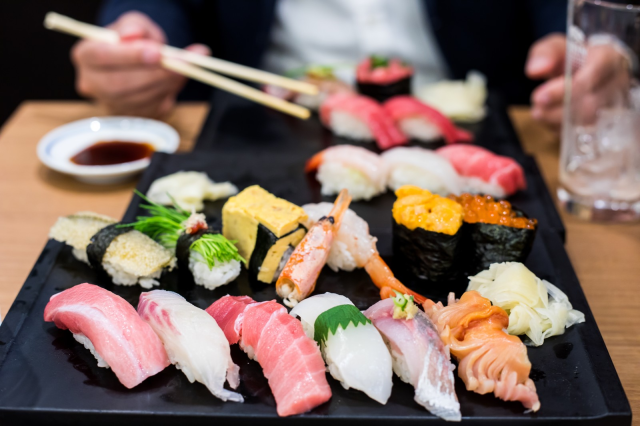
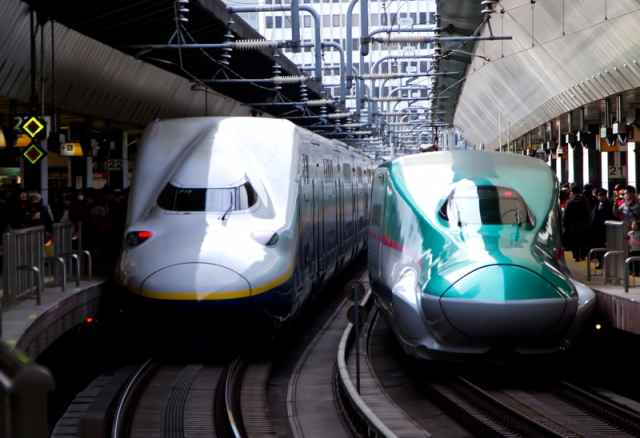
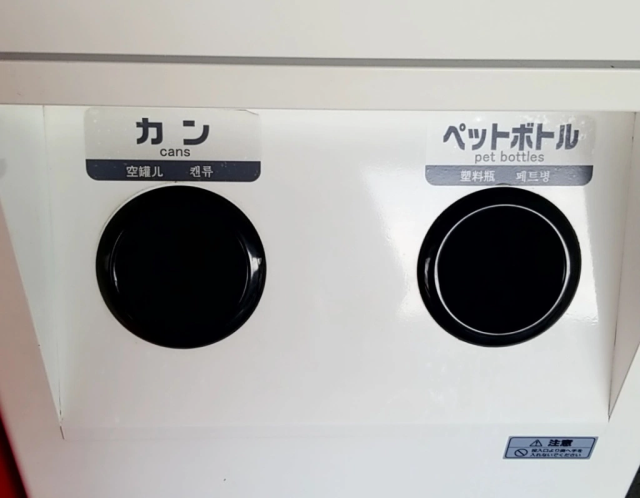
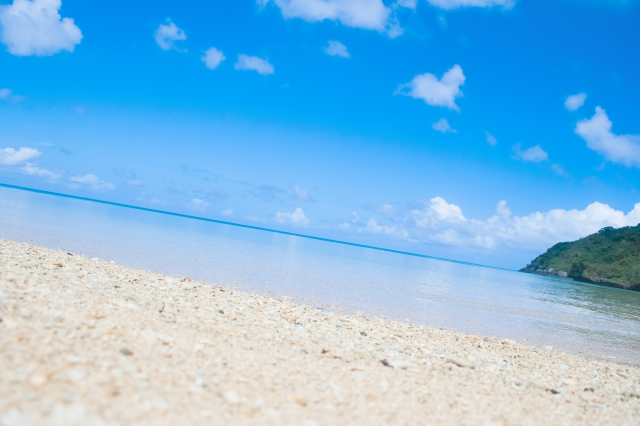
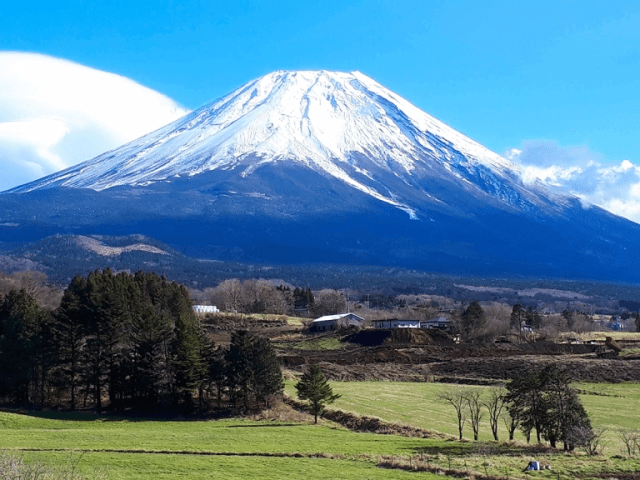
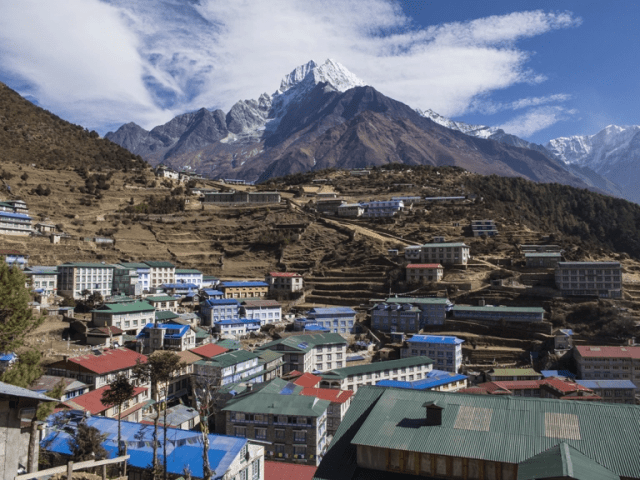
 Nepalese-run Tokyo hair salon gave us the number-one hairstyle for handsome Nepalese men【Pics】
Nepalese-run Tokyo hair salon gave us the number-one hairstyle for handsome Nepalese men【Pics】 The 5 phases of adjusting to life in Japan (from a Western expat point of view)
The 5 phases of adjusting to life in Japan (from a Western expat point of view) Japan second-least attractive country for expats to work, survey says, but is it really that bad?
Japan second-least attractive country for expats to work, survey says, but is it really that bad? Foreigner disappointed by Japan’s hazy concept of “work ending times,” so are Japanese people
Foreigner disappointed by Japan’s hazy concept of “work ending times,” so are Japanese people Five things about New York that surprised our Japanese reporter
Five things about New York that surprised our Japanese reporter Starbucks Japan releases first-ever Hinamatsuri Girls’ Day Frappuccino
Starbucks Japan releases first-ever Hinamatsuri Girls’ Day Frappuccino Japan has only one airport named after a samurai, so let’s check out Kochi Ryoma【Photos】
Japan has only one airport named after a samurai, so let’s check out Kochi Ryoma【Photos】 One Piece characters’ nationalities revealed, but fans have mixed opinions
One Piece characters’ nationalities revealed, but fans have mixed opinions Taiwanese Peppered Pork Buns sold in Tokyo are packed with layers of flavor
Taiwanese Peppered Pork Buns sold in Tokyo are packed with layers of flavor The fish in rural Fukui that rivals Japan’s most auspicious sea bream
The fish in rural Fukui that rivals Japan’s most auspicious sea bream We tried 12 different gummy candies from a Japanese supermarket and found the most delicious one
We tried 12 different gummy candies from a Japanese supermarket and found the most delicious one Majority of Japanese mayors say foreign residents are essential but most see good and bad effects
Majority of Japanese mayors say foreign residents are essential but most see good and bad effects Australian mother reflects on “lunchbox shame” she felt from her son’s Tokyo preschool teacher
Australian mother reflects on “lunchbox shame” she felt from her son’s Tokyo preschool teacher There’s a new world’s largest anime robot statue, and it’s not in Japan【Photos】
There’s a new world’s largest anime robot statue, and it’s not in Japan【Photos】 Beautiful blue apple jam is taking the Japanese internet’s breath away!
Beautiful blue apple jam is taking the Japanese internet’s breath away! Highest Starbucks in Japan set to open this spring in the Tokyo sky
Highest Starbucks in Japan set to open this spring in the Tokyo sky The 10 most annoying things foreign tourists do on Japanese trains, according to locals
The 10 most annoying things foreign tourists do on Japanese trains, according to locals Tokyo Skytree turns pink for the cherry blossom season
Tokyo Skytree turns pink for the cherry blossom season Yakuzen ramen restaurant in Tokyo is very different to a yakuza ramen restaurant
Yakuzen ramen restaurant in Tokyo is very different to a yakuza ramen restaurant Shibuya Station’s Hachiko Gate and Yamanote Line stairway locations change next month
Shibuya Station’s Hachiko Gate and Yamanote Line stairway locations change next month Starbucks Japan releases new sakura goods and drinkware for cherry blossom season 2026
Starbucks Japan releases new sakura goods and drinkware for cherry blossom season 2026 Starbucks Japan adds new sakura Frappuccino and cherry blossom drinks to the menu
Starbucks Japan adds new sakura Frappuccino and cherry blossom drinks to the menu Japan Extreme Budget Travel! A trip from Tokyo to Izumo for just 30,000 yen [Part 1]
Japan Extreme Budget Travel! A trip from Tokyo to Izumo for just 30,000 yen [Part 1] Japan’s new “Cunte” contact lenses aren’t pronounced like you’re probably thinking they are
Japan’s new “Cunte” contact lenses aren’t pronounced like you’re probably thinking they are Japan’s newest Shinkansen has no seats…or passengers [Video]
Japan’s newest Shinkansen has no seats…or passengers [Video] Foreigners accounting for over 80 percent of off-course skiers needing rescue in Japan’s Hokkaido
Foreigners accounting for over 80 percent of off-course skiers needing rescue in Japan’s Hokkaido Super-salty pizza sends six kids to the hospital in Japan, linguistics blamed
Super-salty pizza sends six kids to the hospital in Japan, linguistics blamed Starbucks Japan unveils new sakura Frappuccino for cherry blossom season 2026
Starbucks Japan unveils new sakura Frappuccino for cherry blossom season 2026 Foreign tourists in Japan will get free Shinkansen tickets to promote regional tourism
Foreign tourists in Japan will get free Shinkansen tickets to promote regional tourism Take a trip to Japan’s Dododo Land, the most irritating place on Earth
Take a trip to Japan’s Dododo Land, the most irritating place on Earth Naruto and Converse team up for new line of shinobi sneakers[Photos]
Naruto and Converse team up for new line of shinobi sneakers[Photos] Is China’s don’t-go-to-Japan warning affecting the lines at a popular Tokyo gyukatsu restaurant?
Is China’s don’t-go-to-Japan warning affecting the lines at a popular Tokyo gyukatsu restaurant? Survey asks foreign tourists what bothered them in Japan, more than half gave same answer
Survey asks foreign tourists what bothered them in Japan, more than half gave same answer Japan’s human washing machines will go on sale to general public, demos to be held in Tokyo
Japan’s human washing machines will go on sale to general public, demos to be held in Tokyo Starbucks Japan releases new drinkware and goods for Valentine’s Day
Starbucks Japan releases new drinkware and goods for Valentine’s Day We deeply regret going into this tunnel on our walk in the mountains of Japan
We deeply regret going into this tunnel on our walk in the mountains of Japan Studio Ghibli releases Kodama forest spirits from Princess Mononoke to light up your home
Studio Ghibli releases Kodama forest spirits from Princess Mononoke to light up your home Major Japanese hotel chain says reservations via overseas booking sites may not be valid
Major Japanese hotel chain says reservations via overseas booking sites may not be valid Put sesame oil in your coffee? Japanese maker says it’s the best way to start your day【Taste test】
Put sesame oil in your coffee? Japanese maker says it’s the best way to start your day【Taste test】 No more using real katana for tourism activities, Japan’s National Police Agency says
No more using real katana for tourism activities, Japan’s National Police Agency says Foreign tourists pick the top 10 inconveniences about traveling in Japan【Survey】
Foreign tourists pick the top 10 inconveniences about traveling in Japan【Survey】 Foreigners living in Japan have surprisingly old top Japanese karaoke song picks in survey
Foreigners living in Japan have surprisingly old top Japanese karaoke song picks in survey Number of foreign students in Japan hits record high, one country accounts for over 35 percent
Number of foreign students in Japan hits record high, one country accounts for over 35 percent Survey asks foreign tourists what bothered them in Japan, more than half gave same answer
Survey asks foreign tourists what bothered them in Japan, more than half gave same answer Japanese expat remembers the words that changed his life when he started working in Australia
Japanese expat remembers the words that changed his life when he started working in Australia Five reasons not to live in Japan (as chosen by Switzerland’s perviest otaku)
Five reasons not to live in Japan (as chosen by Switzerland’s perviest otaku) Where’s the happiest place for foreigners to live in Japan? Study investigates
Where’s the happiest place for foreigners to live in Japan? Study investigates Please don’t make the stupid mistake of taking an “abandoned” bike for a ride in Japan
Please don’t make the stupid mistake of taking an “abandoned” bike for a ride in Japan The Tokyo area welcomed more new foreign residents than Japanese ones last year
The Tokyo area welcomed more new foreign residents than Japanese ones last year Japan has abolished advance deportation notifications to foreigners’ lawyers
Japan has abolished advance deportation notifications to foreigners’ lawyers Japan to reopen borders to travelers from all countries worldwide starting in October
Japan to reopen borders to travelers from all countries worldwide starting in October Foreign travelers now spend more money in Japan than ever before, surprise country at top of list
Foreign travelers now spend more money in Japan than ever before, surprise country at top of list Number of foreigners studying Japanese in Japan hits record high, but are there enough teachers?
Number of foreigners studying Japanese in Japan hits record high, but are there enough teachers? Nearly one in ten young adults living in Japan isn’t ethnically Japanese, statistics show
Nearly one in ten young adults living in Japan isn’t ethnically Japanese, statistics show Number of foreigners working in Japan hits all-time high, 25 percent come from same country
Number of foreigners working in Japan hits all-time high, 25 percent come from same country